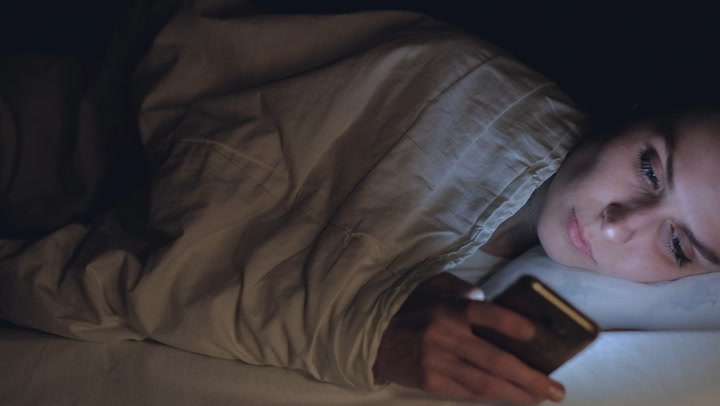Does Insomnia Ever Go Away? Causes and How to Stop It

Definition of sleeplessness:
Insomnia might manifest itself in difficulty winding down before bedtime. Sleep problems include both trouble getting to sleep and staying asleep, as well as frequent early morning awakenings from which you are unable to return to a restful slumber. Drugs and other mental health issues, such as depression or anxiety, may also blue sleeping pill sleepiness. Sometimes the cause of a person’s sleeplessness is obvious, while other times the reason is more elusive.
If you’re having trouble sleeping, it doesn’t matter what the problem is; there are a number of options to help you make up for lost time.
The best place to start is with natural treatments for insomnia.
The bulk of non-medical reasons for insomnia helpers may be traced back to learned behaviour. This is an indication that your mind has fallen into the unhealthy habit of constantly dozing off. Your sleeping patterns can be changed, however. The American Academy of Sleep Medicine suggests non-pharmaceutical methods for treating insomnia.
CBT for sleeplessness: a cognitive-behavioral approach (CBT-I)
Cognitive-behavioral therapy for insomnia (CBT-I) is a structured sleep therapy program used to treat insomnia. Better sleep may be learned with the help of both behavioural and physical exercises.
You may find that CBT-I helps you develop a more optimistic outlook about sleep. If you sleep in the same area every night, your brain and body will learn to link that time of day with sleep, and you’ll be more likely to drift off to dreamland.
Some typical CBT-I practices include the following:
- Tracking one’s slumber may help one have a better understanding of their sleep habits.
- If you’re having trouble sleeping, you could find that you have to get up in the middle of the night.
- Altering your bedroom’s setup to improve your sleep
- Achieving this goal could be the purpose of relaxation or biofeedback exercises.
- CBT-I can be just as effective when done independently of a therapist as it is when done with one. Books and worksheets, as well as internet resources, are readily accessible for self-study.
Don’t give up on cognitive behavioural therapy for insomnia too soon. Be patient and persistent; rewards will come.
During the initial few weeks of working with a CBT-I specialist, you may be required to take medication in order to facilitate learning these sleep methods. If you show progress, your doctor may decide to lower your medication intake over time. The only therapy for insomnia that is more effective than CBT-I alone in the early stages is a combination of CBT-I and medication.
Meditation
In spite of the fact that meditating and being mindful have been around for millennia, the current rise in popularity of these practices has been largely attributable to the proliferation of app-based resources.
But is there any truth to the notion that meditation is beneficial? Professionals think it has the potential to reduce the impact of insomnia. While it’s unlikely that meditation would help you sleep more, it might improve the quality of your rest. It’s the best part since it doesn’t cost anything.
There is potential for better sleep hygiene.
Alternatively, you might try implementing some “sleep hygiene practices,” which include making adjustments to your regular routine and habits in order to enhance your slumber. These are some of the most often recommended remedies for insomnia:
- Don’t let yourself become sleepy throughout the day.
- It’s not good for you to snack late at night.
- The lights should be kept low, preferably all night, when you go to bed.
- Do some outside activity and soak up some rays throughout the day.
- Cut down on the smokes and liquor.
- Before you go off to sleep, check that your bedroom is cool, dark, and silent.
- Pursuing better sleep hygiene alone will not alleviate insomnia. That’s why it’s so important for the CBT-I treatment plan to emphasize healthy sleeping habits.
Meds that may help with sleeplessness
As a consequence of COVID-19, many professionals in the mental health field now provide virtual visits. They will probably inquire about your typical nighttime activities. If they don’t want to do that, they could offer you one of the alternatives below instead:
- Benzos are a category of psychoactive drugs also known as benzodiazepines.
- Drugs used to induce sleep that are not benzodiazepines.
- Melatonin receptor antagonists
- Agonists that inhibit orexin receptors
- Infrequent use of antianxiety medication
- Most doctors will follow up with you a few weeks later to see how you’re doing, either in person or online. Some of the same questions from your first consultation may be asked again to see whether your sleep has improved since then. They could ask about the regularity with which you take your medication or whether you’ve had any unwanted side effects.
Therefore, you should contact your service provider to explain the problem you’re having going to sleep.
Calming medications like aspirin and melatonin
Most sleep aids work better at helping you fall asleep than at keeping you asleep once you’re there. Therefore, medicine makes it much easier to cure insomnia shown as trouble falling asleep.
To relax, take some benzodiazepines or Z-drugs
Zolpidem (Ambien), zaleplon (Sonata), and similar Z-drugs are often reached first while trying to go asleep. They’ll start working in approximately an hour, so you may take them whenever you choose.
Moreover, benzodiazepines may be used. Several benzodiazepines, such as estazolam (Prosom) and triazolam, are licensed by the Food and Drug Administration for the treatment of insomnia (Halcion). If both insomnia and anxiety are present, benzodiazepines like lorazepam (Ativan) may be prescribed.
Hallucinations, intense nightmares, and an inability to do regular tasks while sleeping (such as driving or cooking) are just a few of the possible adverse reactions to some of these medications.
Ramelteon (Rozerem) (Rozerem)
Ramelteon (Rozerem) is highly recommended for its effectiveness as a sleep aid. It works in the same area of the brain as the body’s natural sleep hormone, melatonin, to induce drowsiness.
Although Ramelteon has fewer side effects and is less likely to cause addiction than other sleeping drugs, many users still find it to be ineffective.
Prolonged-release benzodiazepine receptor agonists (BzRAs)
You can get benzodiazepines and Z-drugs with longer half-lives, but these may cause a worse hangover the day after use. Conversely, the extended half-life of these medications in your blood means that you may be able to sleep for longer at night.
In this group, sublingual zopclone is a promising new option (Intermezzo). The Buy Zopiclone quickly dissolves under the tongue, but its effects don’t last long. It’s made for those whose alarms go off at weird hours of the night and who have four hours till they have to start their day.
The next-day tiredness or grogginess that might occur after taking a medication that has a prolonged half-life is quite unusual.
Some people find them addicting.
Many people may develop a tolerance or addiction to benzodiazepines or Z-drugs. If you only use these medications as needed or for a short period of time (no more than a few weeks), you reduce your risk of developing a physical dependence on them.


